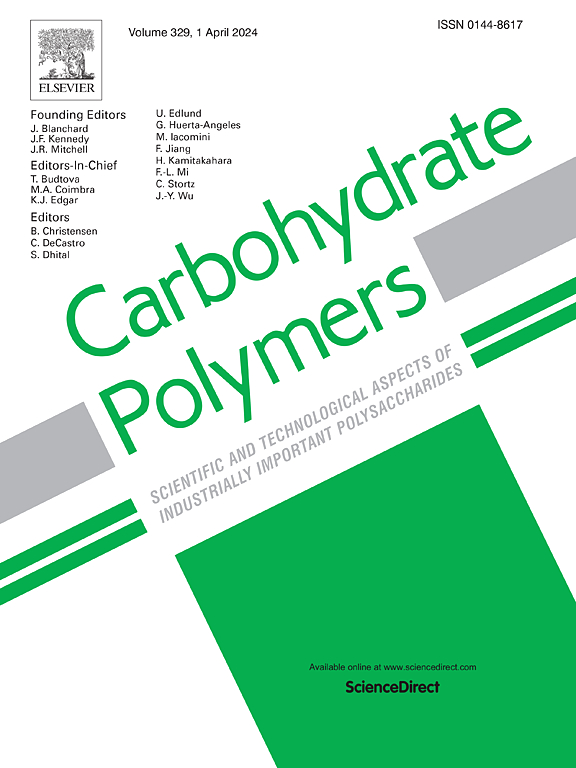Effects of Lactobacillus plantarum fermentation on the retrogradation behaviors, physicochemical properties and structure of rice starch
IF 10.7
1区 化学
Q1 CHEMISTRY, APPLIED
引用次数: 0
Abstract
Starch retrogradation critically compromises shelf stability in rice-based products. This study demonstrates Lactobacillus plantarum (LP) fermentation as an effective biological strategy to retard retrogradation in japonica (JRS), indica (IRS), and glutinous (GRS) rice starches. Controlled fermentation (0–48 h) followed by 4 °C storage (0–14 d) induced significant structural and functional modifications. Results revealed that 48 h LP fermentation significantly suppressed retrogradation, with JRS, IRS and GRS exhibiting 27.55 %, 26.45 %, 35.12 % reductions in retrogradation degree after 14 d of storage compared to unfermented controls (P < 0.05), underscoring LP's broad efficacy. Following 14 days of storage, both JRS and IRS demonstrated significant reductions in crystallinity (38.51 % and 22.56 %, respectively) and short-range molecular order (R1047/1022 decreased by 8.18 % and 11.58 %, respectively) when compared to unfermented controls. The diminished crystallinity and disrupted short-range molecular order in the fermented starches were correlated with delayed recrystallization kinetics. Collectively, these structural modifications inhibited retrogradation. Our findings demonstrate that LP fermentation serves as a natural and effective strategy to enhance functional stability in rice-based foods, with promising applications in ready-to-eat meals and gluten-free baked goods.

植物乳杆菌发酵对水稻淀粉降解行为、理化性质及结构的影响
淀粉的退化严重影响大米产品的货架稳定性。本研究证明植物乳杆菌(Lactobacillus plantarum, LP)发酵是延缓粳稻(JRS)、籼稻(IRS)和糯米(GRS)淀粉退化的有效生物策略。控制发酵(0-48 h)后4°C储存(0-14 d)诱导了显著的结构和功能改变。结果表明,LP发酵48 h后,与未发酵对照相比,JRS、IRS和GRS贮藏14 d后的退化程度分别降低了27.55%、26.45%和35.12% (P <;0.05),说明LP具有广泛的疗效。贮藏14 d后,与未发酵对照相比,JRS和IRS的结晶度显著降低(分别为38.51%和22.56%),近程分子序(R1047/1022分别降低8.18%和11.58%)。发酵淀粉的结晶度降低和短链分子秩序破坏与延迟重结晶动力学有关。总的来说,这些结构修饰抑制了退化。我们的研究结果表明,LP发酵是一种自然有效的策略,可以提高大米食品的功能稳定性,在即食食品和无麸质烘焙食品中有很好的应用前景。
本文章由计算机程序翻译,如有差异,请以英文原文为准。
求助全文
约1分钟内获得全文
求助全文
来源期刊

Carbohydrate Polymers
化学-高分子科学
CiteScore
22.40
自引率
8.00%
发文量
1286
审稿时长
47 days
期刊介绍:
Carbohydrate Polymers stands as a prominent journal in the glycoscience field, dedicated to exploring and harnessing the potential of polysaccharides with applications spanning bioenergy, bioplastics, biomaterials, biorefining, chemistry, drug delivery, food, health, nanotechnology, packaging, paper, pharmaceuticals, medicine, oil recovery, textiles, tissue engineering, wood, and various aspects of glycoscience.
The journal emphasizes the central role of well-characterized carbohydrate polymers, highlighting their significance as the primary focus rather than a peripheral topic. Each paper must prominently feature at least one named carbohydrate polymer, evident in both citation and title, with a commitment to innovative research that advances scientific knowledge.
 求助内容:
求助内容: 应助结果提醒方式:
应助结果提醒方式:


